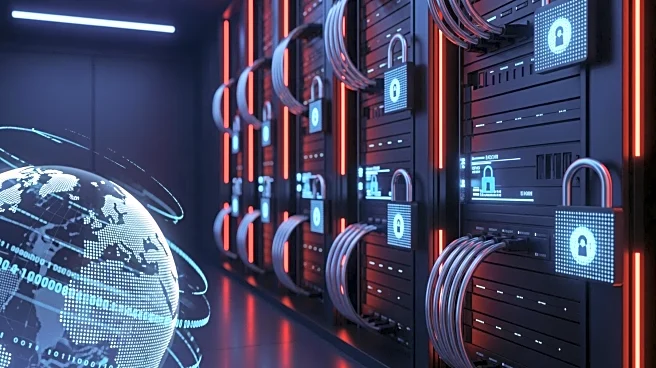What's Happening?
European leaders are urging President Trump to advocate for Ukraine's interests during his upcoming discussions with Russian President Vladimir Putin. In a statement released by 26 of the EU's 27 member countries, excluding Hungary, the leaders expressed their support for President Trump's efforts to end Russia's aggression against Ukraine. They emphasized that any peace agreement must involve Ukraine and respect its territorial integrity, which implies not forcing Kyiv to cede land. The leaders of Germany, France, Poland, Finland, and the U.K., along with the European Commission's head, have reiterated the need for security guarantees and a ceasefire monitored by a robust system. The EU's chief diplomat, Kaja Kallas, has also promised to work on new sanctions and continue financial support for Kyiv.
AD
Why It's Important?
This development highlights the growing assertiveness of European leaders in shaping the resolution of the conflict between Russia and Ukraine. Their stance reflects a more pro-Kyiv position compared to the current U.S. administration under President Trump. The insistence on Ukraine's territorial integrity and security guarantees underscores the EU's commitment to maintaining regional stability and preventing further territorial concessions to Russia. The outcome of President Trump's talks with Putin could significantly impact the geopolitical balance in Europe and the future of Ukraine's sovereignty. The EU's unified stance also signals a potential shift in transatlantic relations, with Europe taking a more active role in addressing security challenges.
What's Next?
The next steps involve President Trump's negotiations with Putin, where the U.S. position on Ukraine's territorial integrity and potential land swaps will be crucial. European leaders are likely to continue their diplomatic efforts to ensure that any peace deal aligns with their security concerns and supports Ukraine's sovereignty. The EU's commitment to sanctions and financial aid for Ukraine suggests ongoing support for Kyiv's integration into European structures. The international community will closely watch the outcomes of these discussions, as they could set precedents for future conflict resolutions and influence global diplomatic dynamics.
Beyond the Headlines
The situation raises ethical questions about the balance between diplomatic negotiations and the rights of nations to maintain their territorial integrity. The potential for land swaps as part of a peace deal could set a controversial precedent, challenging international norms regarding sovereignty and self-determination. Additionally, the EU's proactive stance may lead to a reevaluation of its role in global security and its relationship with the U.S., potentially leading to a more independent European foreign policy.










